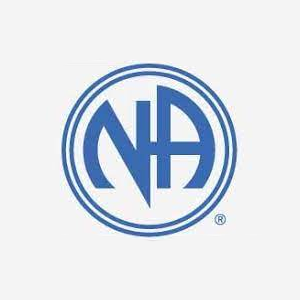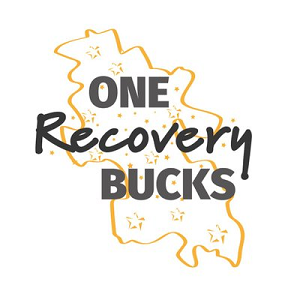Drug & Alcohol Rehab in Bicester

How Does Rehab Work?
Rehab involves the support services and therapies that people with drug or alcohol dependence receive to conquer addiction and subsequent relapse. When a medical assessment and detox are completed, individuals will receive addiction treatment in the form of therapy. Treatment is made up of therapy from a qualified counsellor, the attendance of group meetings as with a 12 Step programme, and the option of inpatient or outpatient rehabilitation. Inpatient rehab services require that clients live at the residence or centre for the duration of therapy. Outpatients will attend therapy by counselling or meetings but will not stay at the facility. Consultation with a medical specialist and an individual assessment will help decide if inpatient or outpatient services are suited to your needs.
What Happens During Residential Rehab?
The choice to seek rehab for drug and alcohol addiction is a courageous one and will be supported with individualised rehabilitation services. We offer a breakdown of what you can expect during the process of drug and alcohol rehabilitation.
Rehab occurs in stages. It starts with a medical assessment. Individuals must be professionally assessed to help staff understand the nature of your addiction, its history and comorbid disorders (such as bipolar or depression). The information obtained from the assessment is used to create a tailored therapy programme for you. Because every person is different, a personalised treatment plan will help provide a more tailored programme that meets your needs and requirements.
The next part of treatment is detoxification. Detox assists with the removal of harmful substances within the body. It may be crucial that it is medically supervised to manage withdrawal symptoms. This is especially true for benzodiazepine and alcohol dependency. The final step of the programme is the treatment itself (therapy). Individuals can then decide upon inpatient or outpatient treatment.
During rehab, patients will receive therapy. Treatment can be provided on an inpatient or outpatient basis. Therapy consists of individual counselling including Cognitive Behavioural Therapy, skill-building and group therapy.
1. Assessment

To acquire the best treatment to meet your needs, an assessment will be the phase of the recovery approach. Assessments are carried out by a medical professional and can include a telephone screening. The professional asks questions about your state of health, your substance use, any history of addiction, and whether you have any comorbid mental health conditions. A telephone assessment supplies staff members with private information that will help to safely handle the detox process.
To help you or someone you know, receive the best possible therapy for addiction and substance use, it is important to receive an individual assessment by a dedicated professional. The assessment will assist the direction of therapy including treatment for people with comorbid illnesses such as anxiety.
2. Detox

Detox is a period in which drugs and alcohol are no longer taken and cleared from the body. It is a process that is best managed by medical staff in an inpatient facility.
A medical detox is often recommended because it helps medical staff to oversee withdrawal symptoms. Withdrawal from drugs or alcohol can be uncomfortable and relapse may occur if not managed within a treatment centrefacility. Medically assisted detox can ease the process by supporting clients and providing medical treatment to reduce uncomfortable symptoms. During an individual assessment, a professional will determine which approach is best suited to a comfortable detox and entry into therapy thereafter.
3. Therapy

Once a medical assessment and detox are completed, individuals will begin therapy. Therapeutic intervention may consist of inpatient or outpatient services depending on your finances and life commitments. Some of the most common therapies you can expect at a treatment centre include traditional one-on-one therapy, trauma counselling and skill-building, and group therapy sessions.
Step by Step Process for Residential Rehab
To understand your medical and mental health history.
Arrange a suitable date to begin your journey to recovery.
Begin the managed withdrawal process from substances including alcohol.
To understand the root cause of addiction and how to overcome it.
Aftercare is provided to help manage the risk of relapse.
To help heal the wounds that addictive behaviour has caused others.
Find your Nearest Rehab Centre in Bicester
The nearest rehab centre is Banbury Lodge – Drug Rehab & Alcohol Rehab Oxfordshire.
Address: Banbury Lodge – Drug Rehab & Alcohol Rehab Oxfordshire, The Hawthorns, Banbury OX16 9FA
Call 0333 4444 432 to discuss your alcohol or drug rehab requirements and any other questions you may have about the process of residential rehab.
Outpatient Addiction Services in Bicester
From inpatient to outpatient services, the necessary treatment for substance addiction will depend on the assessment and budget to determine the appropriate treatment option for your needs. For those who are interested in the flexibility and the affordability of outpatient addiction services, we take a closer look at what it entails compared with an inpatient programme.
When you are accepted into an outpatient service, you will be required to meet with a therapist, support counsellor, or group worker once or twice every week. Rather than stay at the residence, you can continue to attend work and care for your family while you receive treatment for addiction.
PrivateOutpatient care involves individual counselling with a therapist. You will travel to the therapist and engage in hour-long treatment sessions. Apart from private therapy, you can also find free services from charities and government-driven organisations that address substance dependencies.
NHS Free Addiction Services in Bicester
The Benefits of Outpatient Services
Private outpatient plans are tailored to the individual’s needs. The purpose is to provide the best standard of care and intervention for recovery from addiction. – Outpatient support is considered flexible because individuals with families and work commitments can continue to manage these areas of life while attending weekly or twice-weekly counselling sessions. – It is also cheaper in comparison to residential treatment services.
The Challenges of Outpatient Services
Because one remains in the same environment and vulnerable to the same triggers, there is a higher risk of relapse and failure to complete an outpatient programme. Although the NHS and other UK-based charities provide free addiction services, treatment is not tailored to the individual’s needs and waiting lists are to be expected.

How Much Does Rehab Services Cost in Bicester?
Drug and alcohol addiction treatment within a residential setting typically costs between £1500- £4000 per week. If private addiction treatment is not an option, our aim is to help you locate the appropriate recovery programme that fits your budget requirements.
The NHS and charities such as Turning Point provide free addiction treatment programmes for those having difficulties with substance and alcohol addiction. It is worth noting that Turning Point requires a self-referral to access treatment. You will also find free support groups from Alcoholics Anonymous, Cocaine Anonymous, and Narcotics Anonymous very important for long-term recovery from addiction.
Support Groups in Bicester

Bicester Hybrid
Salvation Army Building, Hart Place OX26 4FR

Share and Basic Text reading Group
Fellowship Room Bicester Methodist Church Bell Lane Bicester Oxfordshire OX26 6JQ

Brackley Newcomers Group
The Old Fire Station Community Room 37 High Street Brackley Northamptonshire NN13 6XF
The Pros and Cons of Seeking Treatment in Your Local Area
Pros
1. You are familiar with the area which may provide a layer of comfort/safety.
2. Family or friends can easily travel to visit or are close by.
3. You may save on the costs of travelling long distances for addiction treatment, or free addiction services may only be offered in your area of residency.
Cons
1. A local environment means access to drug dealers or other triggers. This is more of a concern if you decide upon outpatient programmes.
2. Not considering locations outside your area could result in missed opportunity for more valuable and rewarding programmes.
3. Addiction treatment services that are close by don’t always provide the best standard of treatment.
If you are unsure of how to look for a rehab service you can trust, consider the CQC. The CQC website offers listings of rehabilitation services and organisations that are ranked according to the standard of its services.

